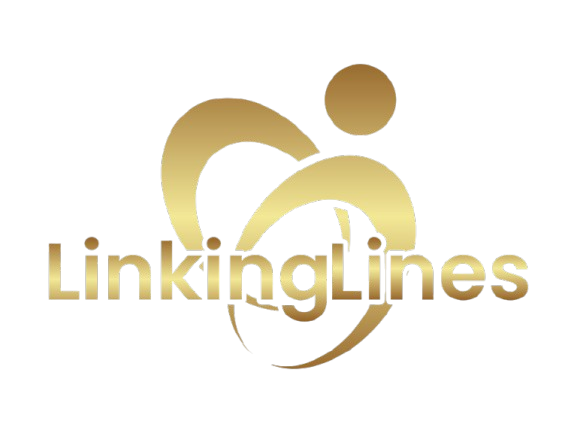If you want to write your own CV but have no idea where to start – don’t worry; we’re here to explain CV writing for beginners!
In this article, we are going to cover the basic questions people are faced with when they want to write a CV. So, let’s get into it.
Should I use a template/CV maker?
We can’t think of a better way to start CV writing for beginners than to look into the phenomenon of templates and CV makers.
If you search for “CV writing” on any search engine, you will get a bunch of hits for both. Numerous pages swear they have the perfect formula. Some write they have prepopulated documents that you need to fill in, others say you can create a perfect CV in just a few clicks.
Our advice? Stay away from both.
We’re not saying they’re inherently bad. Surely, the idea behind them was a noble one. However, you are not the only person looking into CV writing for beginners. Meaning, loads of candidates end up with CVs that look exactly the same because they find the same thing online. So, what’s the result? No one will notice you.
So, to conclude, we’d always recommend writing your CV from scratch.
What should I include in my CV?
Let’s start at the beginning. Your CV should have the following information:
- Contact details
- Overview of your skills/qualifications/personal traits
- Work experience relevant to the job position you now want
- Educational background relevant to the job position you now want
The first two points are very straightforward. As this is an article about CV writing for beginners, we’ll look into the remaining two.
When we say “relevant” we mean something that can be related/connected to what you want to do now. So, if you worked as an accountant and now want to work as a bank clerk, your experience is relevant.
If you worked as a waiting staff and now want to work in manufacturing, your experience is not relevant.
Therefore, the way you include your work experience will differ based on that. Don’t go into too many details describing roles that are not relevant.
Similarly, you will include relevant certificates/courses. And you need to at least briefly describe those so the reader sees what you’ve learned.
What happens if I’m switching careers?
We will briefly touch upon the situation when you’re switching careers and don’t have relevant work or educational background. What to do, then?
First of all, don’t lose hope! People change careers all the time, and there’s a way to do it.
As this is CV writing for beginners, we’ll keep it simple. You include those as well, just don’t go into too many details. The reason is obvious: it’s not relevant so we don’t want to overload the reader with irrelevant stuff.
If you are switching careers, you probably have a course or something to emphasize. So, in your CV, make sure you do precisely that.
How long should it be?
Another very common question when it comes to CV writing for beginners is the length of the document. This actually links to listing all the experiences and/or certificates you have, and we already discussed that.
Ideally, your CV should be 1 page long, but 2 is completely fine. Anything over 2 pages is too much, regardless of how rich your experience and/or educational background is.
If you’re in a situation where you have 2+ pages, look for the stuff you can omit. There’s always something! And be mindful of the phrases you use – there’s always another way to say things, oftentimes, a shorter one.
What is ATS and how do I write an optimized CV?
Last but not least, we can’t talk about CV writing for beginners without at least mentioning the famous ATS. It stands for Applicant Tracking System and it’s a software some companies use to handle the recruitment and hiring processes.
When we talk about ATS-optimized CVs, we talk about adjusting your CV so it fits the job ad. That way, the CV scanning software gets a lot of matches between what they need (stated in the job ad) and what you offer (stated in your CV).
That being said, CV optimization is nothing else but introducing phrases in your CV that appear in the job ad.Some people refer to those as “keywords”.
Still, when optimizing your CV, make sure it’s not too obvious what you’re doing. Therefore, do not create a section called “KEYWORDS”. Even if you pass the software, once a human looks at your CV, they’ll know exactly what you did.
Instead of creating a separate section for those keywords, we recommend incorporating them into your content. That way, you’ll pass the software, but it will look way better and more natural.
Explaining where to find keywords is also important in CV writing for beginners. You can find them in the job ad, pretty much everywhere. A specific skill needed for a position, an app you need to know. What we always recommend is: to find a few job ads for the same position. We recommend 4-8. Scan all of them and see what they have in common. Those are your keywords for sure! Something that every employer wants in the candidate for the same position.
What comes next?
Depending on where you are, there are a few routes you might want to take when it comes to CV writing.
Firstly, you might have other questions. That’s ok! If we haven’t covered something here, drop us an email. We’ll address them in another article for the wider audience to see.
Secondly, you can browse through our blog page and read other articles about CV writing for beginners. There’s plenty of useful content here!
Thirdly, if you want step-by-step CV writing guide that’ll help you write an interview-winning CV, you can order your copy here. Just follow the principles outlined here and get more replies to job applications!
And lastly, if this all seems like too much hassle – check our career services page! We are here for you and we can write a smashing CV that reflects who you are. Learn more here.
[html_block id=”8293″]

















Leave a Reply